
Ali Miraj 12pm - 3pm
1 April 2020, 08:37
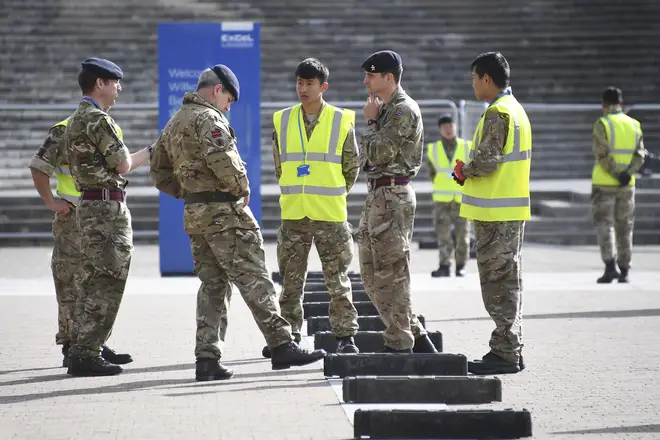
Soldiers and other military personnel have been working 15-hour shifts to ensure the NHS Nightingale Hospital is ready for its first patients.
It has taken only a week to build the 4,000-bed emergency hospital inside the ExCel convention centre in east London, and it is just days away from admitting people with Covid-19 into its wards.
Its size will make it one of the largest hospitals in the world when it fully opens.
Colonel Ashleigh Boreham, the project's senior military lead, said plans for the hospital were only conceived on March 21 in a meeting between the NHS and military.
Since then, up to 200 personnel, including infantry from the 1st Battalion The Royal Anglian Regiment, have been assisting contractors and NHS staff with its construction.
Col Boreham said: "I arrived on site and met with the NHS last Saturday.
For all the latest news on coronavirus, follow our live blog
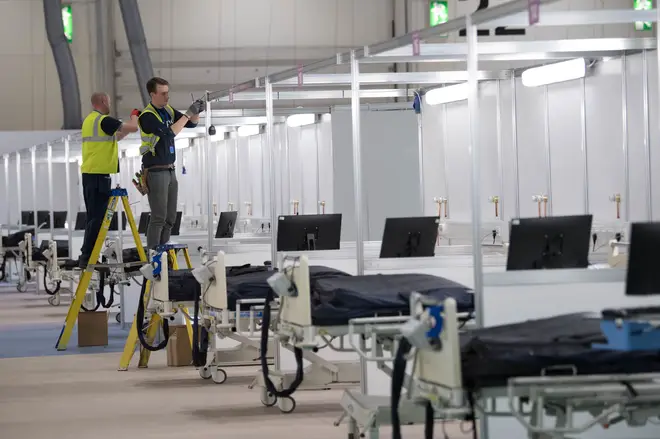
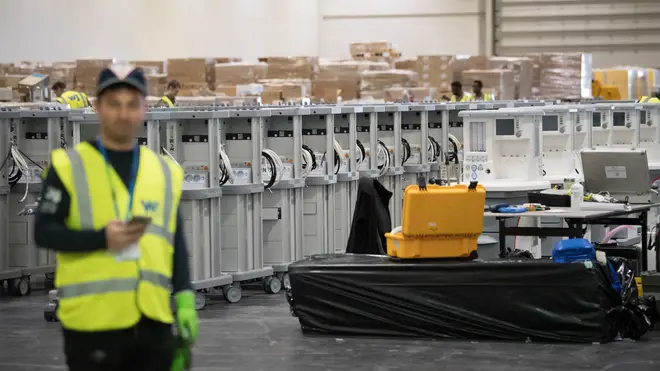
"We literally sat down with a piece of paper and some drawings and came up with a concept that the NHS and us thought would work well.
"From that point there, we have re-purposed this wonderful building into an NHS hospital."
He said the number of military personnel on site has expanded from eight to 60 over the past week, ranging from medical advisers, engineers and logistics staff.
However, the numbers increased further when infantry soldiers were brought in to help at the peak of the facility's construction and have been working around the clock to ensure it is ready in time.
"It's long hours," Col Boreham said on Tuesday.
"It's like what they would normally do on operations.
"It's longer hours than what people are used to working in some parts of the organisation.

Inside the first NHS Nightingale Hospital
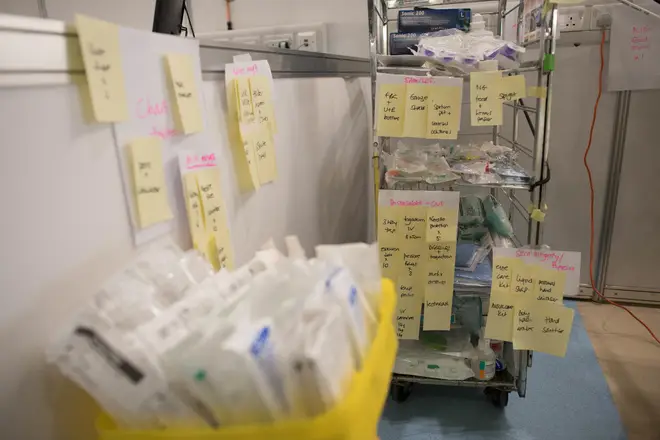
"We start at about 7am in the morning and will finish at 10pm at night and we have been here since the start."
Col Boreham said all military staff were on a rotation system to ensure they are given time to rest and recuperate.
He said the ExCel centre was chosen by the NHS, but supported by military planners due to its existing utilities.
"This site is perfect," he said.
"It has a corridor down the middle, it has got big areas to create wards and bays and sufficient utilities to sustain a facility of this size."
More than 16,000 members of staff could be needed to run NHS Nightingale should it reach full capacity.
Chief operating officer Natalie Forrest said a "scary" number of staff would be needed to run the facility at full capacity and appealed for volunteers to come forward.
"If we have to use this facility, which I really hope we don't because everyone is staying home and washing their hands and social distancing, we will need thousands of doctors and nurses and volunteers to run this facility," she said.
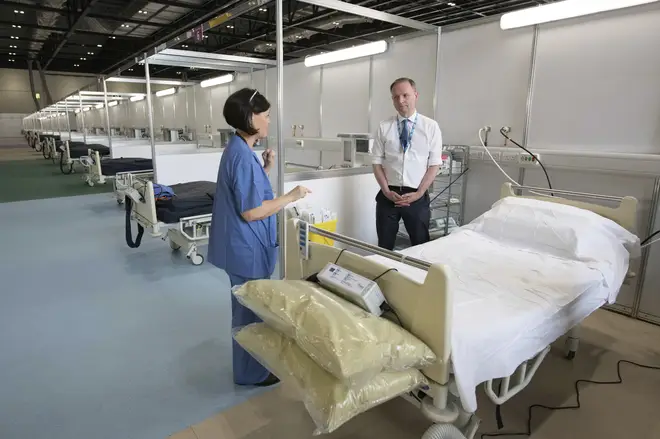
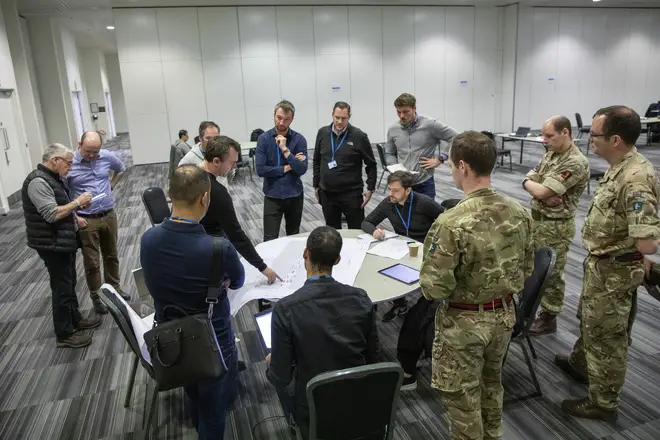
The hospital will initially aim to care for 42 patients, before its expansion is "ramped up" to ensure it can meet its full 4,000-bed capacity in two weeks' time if needed, the Nightingale's chief medical director Alan McGlennan said.
He said coronavirus patients who are transferred to the hospital will already be on a ventilator and will remain at the Nightingale until their course of ventilation is finished.
Coronavirus patients suffering from other serious conditions - such as cardiac issues - will be better cared for at other specialist centres, Mr McGlennan said.